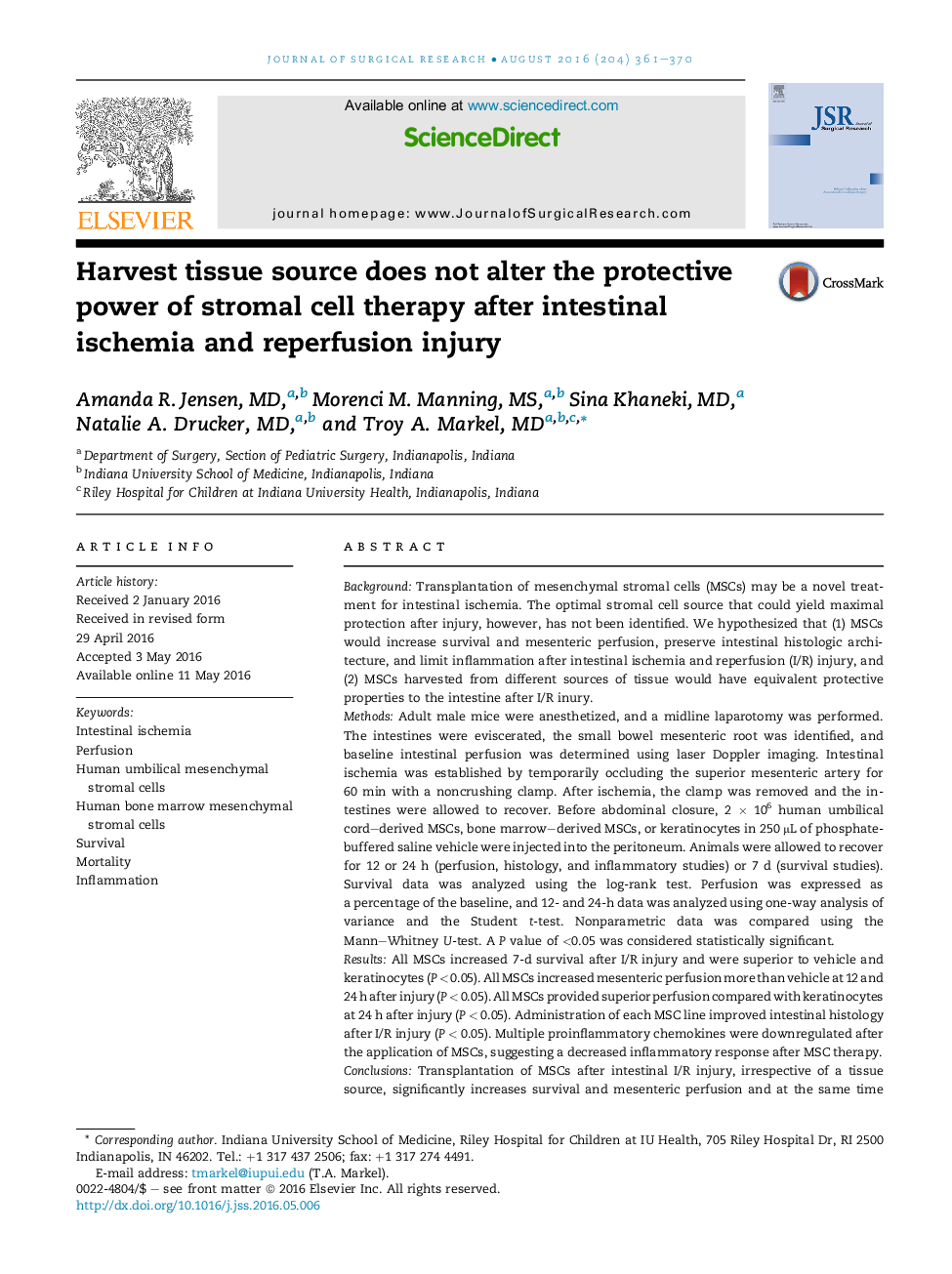| Article ID | Journal | Published Year | Pages | File Type |
|---|---|---|---|---|
| 4299115 | Journal of Surgical Research | 2016 | 10 Pages |
BackgroundTransplantation of mesenchymal stromal cells (MSCs) may be a novel treatment for intestinal ischemia. The optimal stromal cell source that could yield maximal protection after injury, however, has not been identified. We hypothesized that (1) MSCs would increase survival and mesenteric perfusion, preserve intestinal histologic architecture, and limit inflammation after intestinal ischemia and reperfusion (I/R) injury, and (2) MSCs harvested from different sources of tissue would have equivalent protective properties to the intestine after I/R inury.MethodsAdult male mice were anesthetized, and a midline laparotomy was performed. The intestines were eviscerated, the small bowel mesenteric root was identified, and baseline intestinal perfusion was determined using laser Doppler imaging. Intestinal ischemia was established by temporarily occluding the superior mesenteric artery for 60 min with a noncrushing clamp. After ischemia, the clamp was removed and the intestines were allowed to recover. Before abdominal closure, 2 × 106 human umbilical cord–derived MSCs, bone marrow–derived MSCs, or keratinocytes in 250 μL of phosphate-buffered saline vehicle were injected into the peritoneum. Animals were allowed to recover for 12 or 24 h (perfusion, histology, and inflammatory studies) or 7 d (survival studies). Survival data was analyzed using the log-rank test. Perfusion was expressed as a percentage of the baseline, and 12- and 24-h data was analyzed using one-way analysis of variance and the Student t-test. Nonparametric data was compared using the Mann–Whitney U-test. A P value of <0.05 was considered statistically significant.ResultsAll MSCs increased 7-d survival after I/R injury and were superior to vehicle and keratinocytes (P < 0.05). All MSCs increased mesenteric perfusion more than vehicle at 12 and 24 h after injury (P < 0.05). All MSCs provided superior perfusion compared with keratinocytes at 24 h after injury (P < 0.05). Administration of each MSC line improved intestinal histology after I/R injury (P < 0.05). Multiple proinflammatory chemokines were downregulated after the application of MSCs, suggesting a decreased inflammatory response after MSC therapy.ConclusionsTransplantation of MSCs after intestinal I/R injury, irrespective of a tissue source, significantly increases survival and mesenteric perfusion and at the same time limits intestinal damage and inflammation. Further studies are needed to identify the mechanism that these cells use to promote improved outcomes after injury.
